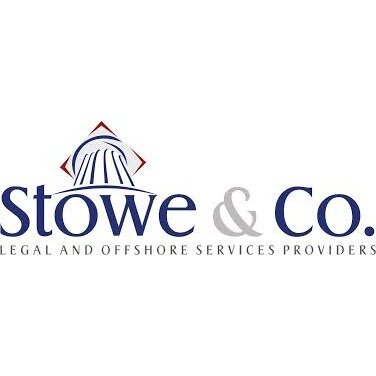Best Restructuring & Insolvency Lawyers in Roseau
Share your needs with us, get contacted by law firms.
Free. Takes 2 min.
List of the best lawyers in Roseau, Dominica
About Restructuring & Insolvency Law in Roseau, Dominica
Restructuring and insolvency law in Roseau, Dominica offers legal frameworks and mechanisms that enable businesses and individuals facing financial difficulties to manage their debts and, where possible, return to a stable financial footing. These laws are designed both to help financially distressed companies reorganize and continue operating, as well as to provide fair procedures for distributing assets among creditors if recovery is not feasible. Dominica's legal system draws on its British Commonwealth heritage, and relevant proceedings unfold under the guidance of the High Court of Justice as part of the Eastern Caribbean Supreme Court system. The statutory bases commonly engaged include the Bankruptcy and Insolvency Act and associated regulations.
Why You May Need a Lawyer
Legal advice is highly recommended for anyone dealing with restructuring or insolvency issues. You may need a lawyer if:
- You are a business owner in financial distress considering restructuring to avoid insolvency.
- You are an individual struggling to repay debts and facing potential bankruptcy.
- You have received a statutory demand or bankruptcy notice from a creditor.
- Your company is being pursued by creditors or threatened with winding-up proceedings.
- You intend to recover debts from an insolvent business or individual.
- You are a director concerned about personal liability in insolvency situations.
- You wish to understand your rights and obligations when your employer or debtor goes bankrupt.
- You are interested in buying assets from an insolvent estate and need legal guidance.
Restructuring and insolvency matters can be complex, often involving obligations to creditors, employees, tax authorities, and shareholders. A lawyer can help negotiate settlements, prepare court documentation, advise on duties and steps to protect your interests, and represent you in court.
Local Laws Overview
Restructuring and insolvency law in Dominica is primarily governed by the Bankruptcy and Insolvency Act, which sets out the main procedures for both individuals and corporations. Key aspects include:
- Corporate Restructuring: Companies in financial trouble may seek protection from creditors while formulating a restructuring plan or arrangement. This could involve reorganization of debts, new credit arrangements, or negotiated settlements with creditors.
- Bankruptcy Proceedings: When debts cannot be repaid, bankruptcy allows for the orderly liquidation of assets, distribution to creditors in accordance with legal priorities, and eventual discharge of remaining debts for individuals.
- Receivership: Creditors with secured interests (like banks) can appoint a receiver to realize specific assets if their loans are in default.
- Winding Up: Companies that cannot pay their debts may be wound up by order of the court, leading to the collection and division of assets among creditors.
- Duties of Directors: Company directors have specific duties during insolvency, including acting in the best interests of creditors once insolvency is apparent.
- Preferential Payments and Fraudulent Conveyances: Payments made to favor particular creditors or transfers made to defeat creditor rights may be challenged and set aside in insolvency.
Court processes can be technical and deadlines are strictly enforced, making professional guidance crucial for protecting your rights.
Frequently Asked Questions
What is the difference between restructuring and insolvency?
Restructuring is a process that helps a financially distressed business or individual reorganize their debts to avoid bankruptcy or liquidation. Insolvency is a financial state where a person or company cannot pay their debts as they come due, often leading to bankruptcy or winding-up proceedings.
Can a company continue operating during restructuring?
Yes, a company often continues to operate while restructuring takes place, subject to court supervision and creditor agreements. This process aims to preserve value and jobs where possible.
Are directors personally liable for company debts in an insolvency?
Generally, directors are not personally liable for company debts. However, if directors trade while knowingly insolvent or breach specific legal duties, they may become personally responsible for certain debts or face penalties.
What happens to employees if their employer goes bankrupt?
Employees become unsecured creditors and may have claims for unpaid wages, vacation pay, or severance. Limited statutory priorities may grant employees certain protections, but payments depend on available assets.
How are creditors paid in an insolvency?
Payments are made according to a statutory order of priority: costs of insolvency proceedings, secured creditors, preferential creditors (such as employees), and then unsecured creditors. Not all debts may be paid in full.
What is the role of the court in restructuring and insolvency proceedings?
The court supervises many aspects of restructuring and insolvency, including approval of restructuring plans, declarations of bankruptcy, and adjudication of creditor disputes.
Can individuals file for bankruptcy in Dominica?
Yes, individuals can initiate bankruptcy proceedings if they cannot pay their debts. This is typically a last resort after efforts to settle debts have failed.
What are the consequences of bankruptcy for individuals?
Bankruptcy can result in the sale of assets to pay creditors, restrictions on financial activity, and credit rating impacts. After a successful discharge, remaining debts are generally wiped out.
Is it possible to contest a bankruptcy or winding up petition?
Yes, affected parties can object or file a defense before the court. Early response is crucial, as deadlines are strict and failing to act can lead to automatic judgments.
How long does the insolvency or restructuring process take?
The timeline varies depending on the complexity of the case and type of procedure. Some restructuring plans may conclude in a few months, while bankruptcy and winding-up proceedings can take a year or longer.
Additional Resources
For extra information and support on restructuring and insolvency in Roseau, Dominica, consider reaching out to:
- High Court of Justice - Dominica: Handles insolvency, bankruptcy, and company matters.
- Ministry of National Security and Home Affairs (responsible for companies registry): Provides access to company and insolvency filings.
- Eastern Caribbean Supreme Court: Offers published judgments and procedural guides relevant to insolvency cases.
- Local Attorneys and Law Firms: Specializing in corporate, commercial, and insolvency law.
- Dominica Association of Industry and Commerce: Can direct business owners to further education and support services.
Next Steps
If you need legal assistance with restructuring or insolvency in Roseau, Dominica, consider the following steps:
- Gather all relevant financial documents, contracts, and correspondence about your situation.
- List your assets and liabilities, including amounts owed to and by you.
- Consult a qualified local lawyer with experience in restructuring and insolvency. Early legal advice can help protect your interests and may provide more options for resolution.
- Be open and transparent with your legal advisor so they can understand the full picture and recommend the best course of action.
- Follow all legal instructions closely, meet deadlines, and attend court as required.
Timely and informed action is critical to achieving the best possible outcome in restructuring or insolvency matters.
Lawzana helps you find the best lawyers and law firms in Roseau through a curated and pre-screened list of qualified legal professionals. Our platform offers rankings and detailed profiles of attorneys and law firms, allowing you to compare based on practice areas, including Restructuring & Insolvency, experience, and client feedback.
Each profile includes a description of the firm's areas of practice, client reviews, team members and partners, year of establishment, spoken languages, office locations, contact information, social media presence, and any published articles or resources. Most firms on our platform speak English and are experienced in both local and international legal matters.
Get a quote from top-rated law firms in Roseau, Dominica — quickly, securely, and without unnecessary hassle.
Disclaimer:
The information provided on this page is for general informational purposes only and does not constitute legal advice. While we strive to ensure the accuracy and relevance of the content, legal information may change over time, and interpretations of the law can vary. You should always consult with a qualified legal professional for advice specific to your situation.
We disclaim all liability for actions taken or not taken based on the content of this page. If you believe any information is incorrect or outdated, please contact us, and we will review and update it where appropriate.











